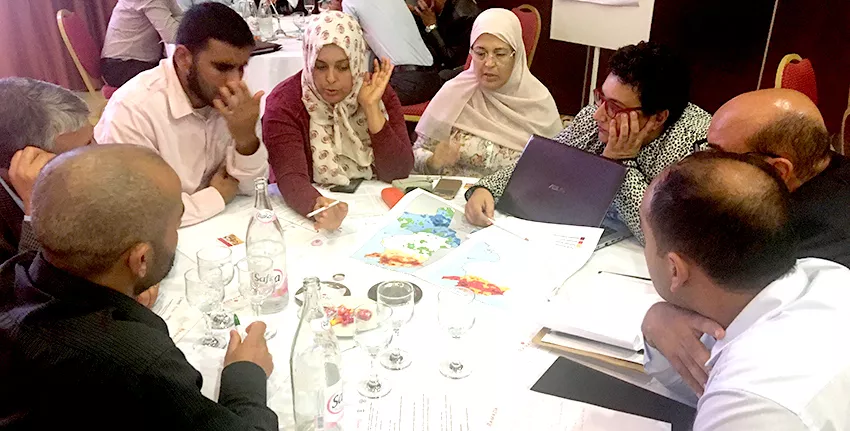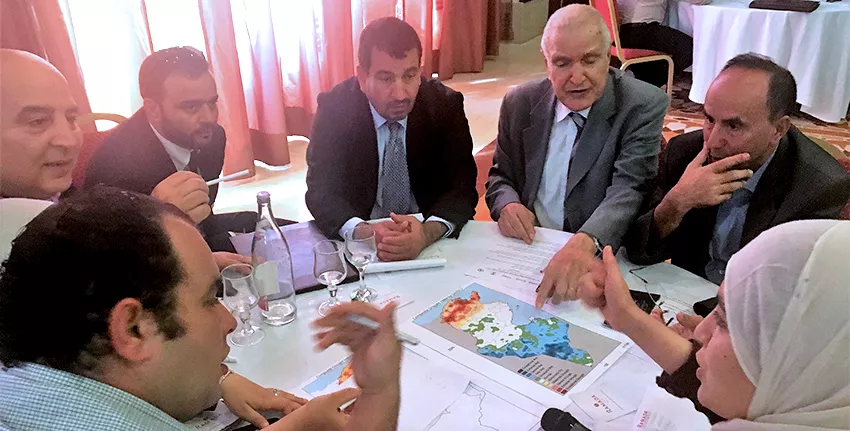ICBA trains Tunisian experts in validating national drought monitoring system
11 October 2017
Agriculture is an economic mainstay in Tunisia. But it has lately been hit by a growing number of dry spells. The country has experienced several severe droughts in the past years, suffering major economic losses. Alas, lack of accurate drought monitoring and forecasting is making it difficult for policymakers to take early preventive measures. An operational drought monitoring system could help decision-makers better assess the severity and extent of drought and take necessary actions.
The government is trying to explore advanced technologies to mitigate the impact of drought. It has joined forces with several local and international organizations to find effective solutions to the ever-growing problem of drought. As part of this initiative, the government recently partnered with the International Center for Biosaline Agriculture (ICBA) to establish an operational drought monitoring system and build the capacities of local experts.
Under this partnership, ICBA conducted a two-day training workshop on validating Tunisia’s drought monitoring system. Held in Tunis on 10-11 October 2017, the workshop brought together more than 90 participants representing various government and non-government organizations.
The participants were given hands-on training on the drought management and monitoring system by ICBA scientists. The ICBA team also explained step-by-step techniques in generating real-time drought maps in minutes, using a special open-source program developed by ICBA scientists in collaboration with the University of Nebraska – Lincoln and the National Drought Mitigation Center (NDMC) in the US.
ICBA has been carrying out climate change mitigation and adaptation work for more than a decade. In 2015 the center launched a regional drought management system for the Middle East and North Africa (MENA) countries, which already face climate extremes and have to find ways to mitigate their negative impacts.
The regional drought management system is a result of ICBA’s long-running collaboration with the University of Nebraska – Lincoln, the National Aeronautics and Space Administration (NASA), the United Nations Food and Agriculture Organization (FAO) and other partners. The main goal of the initiative is to provide data on climate, crops, and water resources and help policymakers and agencies plan better how to manage droughts.
Over the past decade, ICBA has conducted many capacity-building programs to the effect across several MENA countries, including Iraq, Jordan, Lebanon, Morocco, Sudan and Tunisia.












